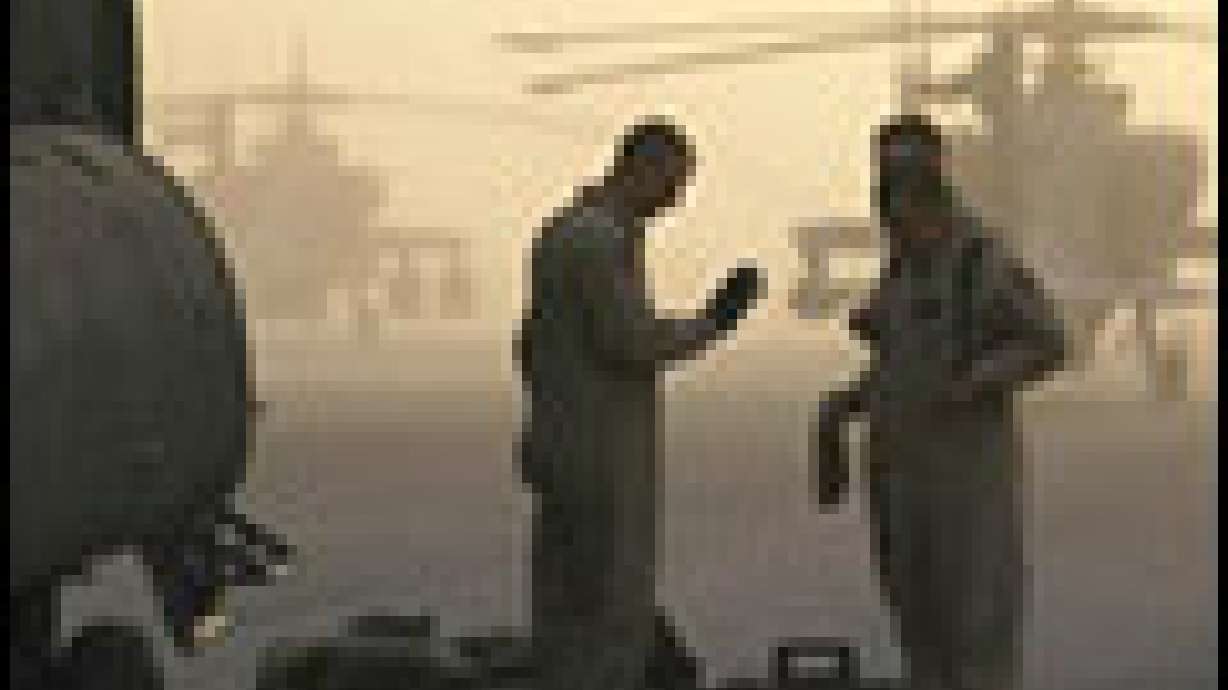Estimated read time: 2-3 minutes
This archived news story is available only for your personal, non-commercial use. Information in the story may be outdated or superseded by additional information. Reading or replaying the story in its archived form does not constitute a republication of the story.
RIYADH, Saudi Arabia (AP) -- Saudi Arabia has contacted the United States and Iraq with a peace proposal, the kingdom's foreign minister told reporters Tuesday. He said he was awaiting a response.
Foreign Minister Saud al-Faisal, asked at a news conference whether Saudi Arabia had been in direct contact with the United States and Iraq in an effort to end the war, said: "We have made the proposal and we are waiting for a possible response."
He did not describe the proposal.
"I don't want to say we were rebuffed because we were not rebuffed, but nor were we given authorization that they're going with it," he said.
The Saudi government has quietly aided the U.S. war effort, even while anti-war and anti-U.S. sentiment simmers among its citizens.
The kingdom fears a backlash from extremists.
Weeks ago, Saudi Arabia discreetly floated the idea that Saddam Hussein should go into exile. It also presented to Western powers the idea of offering amnesty to all but the tight circle around Saddam in the hopes that senior generals would overthrow him.
"Both sides know now what this war is going to bring them," Saud said Tuesday. "Perhaps this is a good time instead of continuing on the line that will only add to the boiling situation in the Middle East and create hatreds that perhaps will remain for a long time, that this is a good time to stop, take a breather, see what diplomacy can bring about."
Saudi Arabia hosted the U.S.-led coalition that expelled Iraq from Kuwait in the 1991 Gulf War. At that time, the kingdom was under direct threat from the Iraqis, who were moving south in the direction of Saudi Arabia.
After that war ended, thousands of U.S. troops, now housed at the Prince Sultan air base outside Riyadh, stayed to monitor the no-fly zone established in southern Iraq to protect the country's Shiites from Saddam Hussein's troops.
The high-profile participation of Americans in 1991 roused the anger of Muslim militants and gave a pretext for Saudi-born Osama bin Laden to go after the ruling royal family and the United States.
Since the Sept. 11 attacks, carried out by 19 Arab followers of bin Laden, including 15 Saudis, dozens of al-Qaida sympathizers have been arrested in the kingdom and a few Westerners have been attacked. The attacks have also strained the decades-old Saudi-U.S. alliance.
"We'll be knocking on all doors to bring peace," Saud said Tuesday. "It's too important to leave to just the gods of war to determine where this thing ends."
(Copyright 2003 by The Associated Press. All Rights Reserved.)









